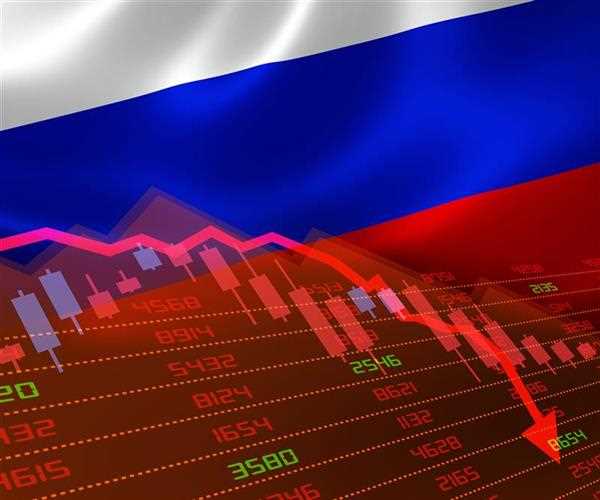
26-Feb-2023
How the Russia-Ukraine war has impacted Indian and Global economies
The ongoing conflict between Russia and Ukraine is said to have significant repercussions not only for the Indian economy but also for the global economy, which is still recovering from the stress brought on by the coronavirus pandemic.
The International Monetary Fund (IMF) had previously pointed out that Russia and Ukraine are both major producers of commodities. As a result, disruptions there have pushed up global and Indian prices, particularly for oil and natural gas. Food prices have also increased as a result of Ukraine and Russia accounting for up to 30% of wheat exports worldwide. The IMF added that slower growth and faster inflation would affect the entire global economy.
In its Spring 2022 Economic Update for Europe and Central Asia, the World Bank also stated that the conflict brought about a humanitarian catastrophe and was the second major shock to the global and Indian economies in two years.
Hunger and poverty
The World Bank's baseline estimate assumes that Ukraine's poverty will rise from 1.8% in 2021 to 19.8% in 2022 based on the $5.50 per day threshold rate. In addition, UN-developed models suggested that nearly 30% of the population could fall into poverty as a result of a more severe and prolonged war. The World Bank said that the most recent rise in food prices could put an additional 40 million people under the $1.90-per-day poverty line, based on estimates provided by the authors of a blog published by the Centre for Global Development.
But in india, domestic equity markets will hurt
Domestic equity markets plunged 815 points and 2,700 points, respectively, following Russia's announcement of military operations in Ukraine. On February 24, 2022, the Sensex experienced its fourth-worst decline ever and its worst decline since March 2020, when the Covid pandemic began.
Both the Sensex and the Nifty recovered over the following months. However, the benchmark indices experienced their greatest decline since the June conflict in Ukraine. Last year, on June 16, there were growing concerns about the war and how it would affect inflation and the economy. This caused the Sensex and Nifty to drop to their 52-week lows. On June 16 of last year, the Sensex fell to 51,360.42, while the Nifty fell to 15,293.50.
Shift in energy trade :
The World Bank noted that the restriction that natural gas must be transported as liquified natural gas and the limited spare capacity of European import and export terminals have both contributed to the steep rise in the price of natural gas.
The International Monetary Fund (IMF) predicts that economies that rely on oil imports will face larger fiscal and trade deficits and greater inflationary pressure. However, higher prices may be advantageous to exporters in Africa and the Middle East. If supply chains are rearranged, payment networks are fragmented, and energy trade shifts, the war may fundamentally alter the global economic and geopolitical order in the long run.
Talking about the indian economy
The conflict between Russia and Ukraine has crippled the global supply chain, resulting in a global food shortage and country-specific high inflation rates.
In February of last year, before the conflict in Ukraine began, the Reserve Bank of India predicted that average inflation would be 4.5% for FY23 as the number of Covid-19 cases decreased.
Supply chain disruptions in commodity trade
According to the IMF, in addition to rising fuel prices, there may also be wider disruptions in the supply chain. Global value chains may also be troubled by disruptions, sanctions, and higher commodity prices. Supply chains for high-value goods and critical components, such as those in the automotive and electronics industries, particularly bore the brunt of interruptions in the trade corridor between Europe and Asia, which may exacerbate the ongoing strains, lengthen delivery times, and raise production costs for manufacturers worldwide.
India has seen a huge loss in crude import
As a result of Russia's invasion of Ukraine, the West imposed numerous sanctions on Moscow. Russia's purchases were restricted by Western nations, including EU nations, which obtain 40% of their natural gas requirements from Moscow. In December, the G7 nations set a price cap on crude products of $60 per barrel to limit Russia's oil export revenues.

SEO and Content Writer
I am Drishan vig. I used to write blogs, articles, and stories in a way that entices the audience. I assure you that consistency, style, and tone must be met while writing the content. Working with the clients like bfc, varthana, ITC hotels, indusind, mumpa, mollydolly etc. has made me realized that writing content is not enough but doing seo is the first thing for it.
Join Our Newsletter
Subscribe to our newsletter to receive emails about new views posts, releases and updates.
Copyright 2010 - 2026 MindStick Software Pvt. Ltd. All Rights Reserved Privacy Policy | Terms & Conditions | Cookie Policy